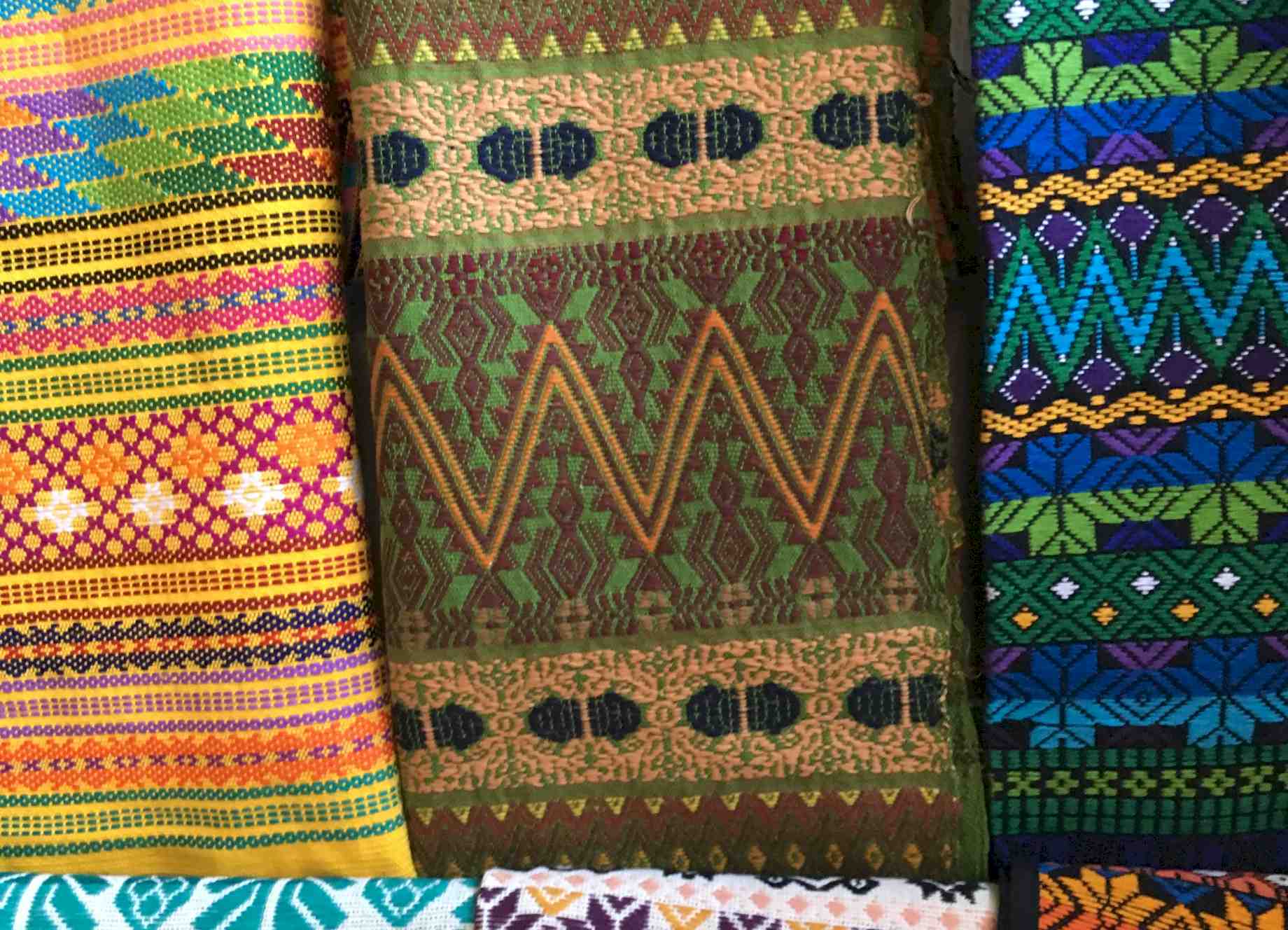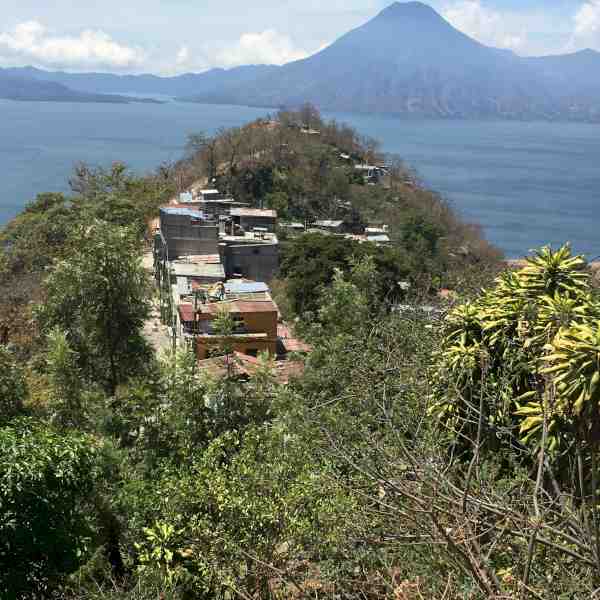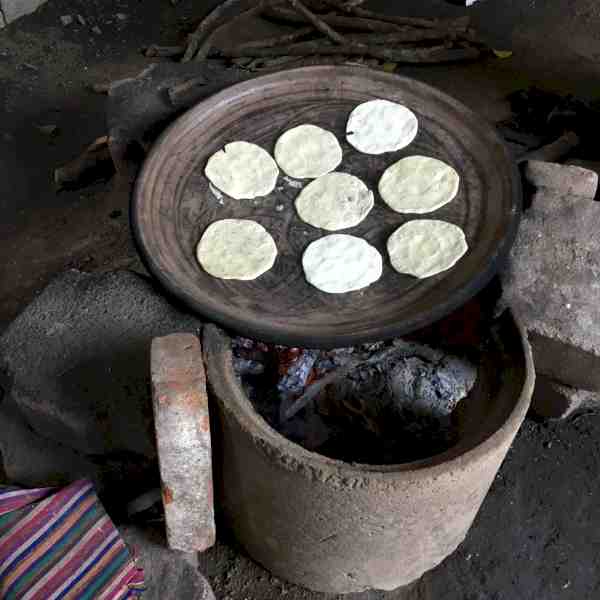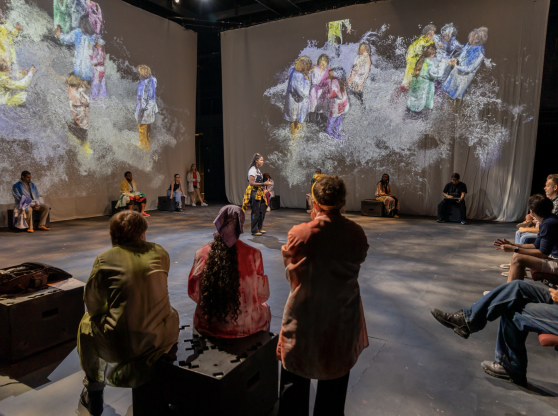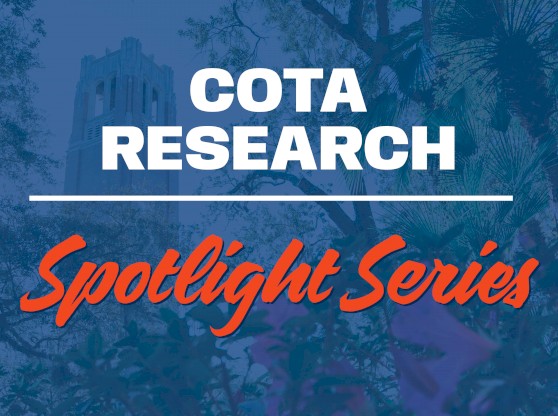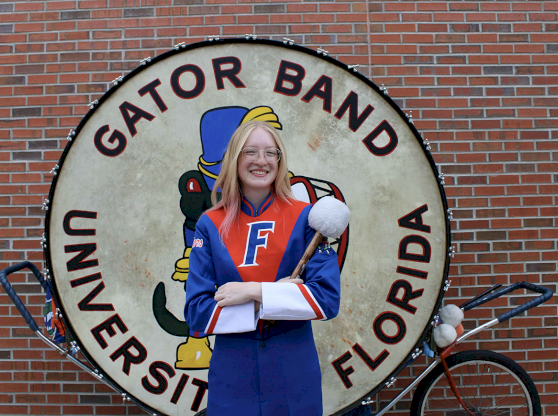Online Master of Arts in Art Education student Kimberly Thomas strives to combine her love for teaching with her passion towards inclusion and diversity. She went on a trip to Guatemala where she was able to learn about the culture there and how it ties into her artistic studies. In being a first generation college student, Kimberly Thomas aims to be a part of initiatives to support first generation college students and open their eyes to a world of opportunities.
Gabriela: What did you do during your trip to Guatemala?
Kimberly: “I went with Dr. Heidi Powell, who is the director of the online Master of Arts in Art Education program, to Guatemala with some graduate and undergraduate students. We did a survey of arts in Guatemala and community based art. The main attraction of our visit was the alfombras we created for their Semana Santa parade - they were carpets made out of dyed sawdust.”
Gabriela: What did you like the most about the culture or was there anything specific that stood out for you?
Kimberly: “For me, it was my first time leaving the country, which made me a little bit nervous. I thought about cancelling a few times but one of the things that stood out for me was the importance of saying yes to opportunities. I thought I was going to see weaving and dying by indigenous Mayan people but I realized when I was there that there was this beauty and joy that the people there shared. They had such an amazing and strong sense of their culture, food, and music, all of these things that made Guatemala very special. I think sometimes we miss this in the United States because we come from so many different areas and backgrounds that there isn’t necessarily any unifying thing, so I think that is something that really grabbed my attention.”
Gabriela: How did this trip to Guatemala affect your course of research?
Kimberly: “When I graduate from my program in December, just because of this single experience, I’m interested in applying for the Latin Studies MA at the University of Florida because I became so passionate about what we were doing there. I’m going back to Guatemala in 4 weeks and I’m super excited about that.”
Gabriela: Can you expand upon the unexpected value of saying “yes” to things? Did you encounter anything that was unexpected?
Kimberly: “I am a first generation college student, my parents have middle school education and so we never really left the pretty immediate area in which we lived in Pennsylvania. When I landed in the airport, I did not fill out my immigration paperwork properly because my Spanish wasn’t as great as I thought it was before I left, so there were people yelling at me in Spanish and I immediately had this culture shock. I remember thinking that nobody cared that I didn’t speak Spanish very well. Once we started walking around, it threw me off to be surrounded by so many different types of police holding very large guns. However, being out of my comfort zone was actually really good because it helped give me some perspective. I am a teacher in Florida and a lot of my students come from Latin American countries. Most of them are learning English as young people, I feel like I came back from Guatemala with a strong appreciation for their culture and a better understanding of some of the things they struggle with, such as sitting in the classroom and not catching all of the directions or maybe not understanding a few words about what they are supposed to do. I have been able to apply everything I learned from my trip to Guatemala to better communicate with my students.”
Gabriela: Can you describe your experience as a first generation college student and how you’ve been able to use your degree towards what you want to do in your professional career?
Kimberly: “The only people I knew at the time that had gone to college were my high school teachers. Thanks to the fact that one of my art teachers really pushed me and helped me prepare my applications, I decided to go for a Bachelors in Fine Arts degree because I knew that I was a great artist. When I was in college I went to my classes everyday, stayed in the art studios, got really good grades, and graduated with honors, but I didn’t involve myself in anything else. I didn’t know that one of the best things you could do in college was find experiences like this trip to Guatemala, to accompany your professors to art shows, to be involved in clubs and organizations, and to be involved in the dynamics of college life in a way that can help you build a resume and portfolio for when you graduate. When I graduated, I never really did anything with my degree because I wasn’t too sure how to use it. I made the decision about five years ago to pursue my love for art and education. I moved to Jacksonville, Florida and got my first job as a teacher and started the Masters in Art Education Program. My professors started to expose me to things that I hadn’t previously been aware of. I never thought I would get my certification and actually become an art teacher.”
Gabriela: Did your trip to Guatemala help you become more confident in your mentoring, presentations, organizing and business skills?
Kimberly: “Now that I’ve had this exposure from travelling to Guatemala and having really great professors who are including me in different things, I realized that my absolute passion is diversity and inclusion. I really love supporting my students and using art and culture to talk about things such as race and ethnicity. I am now applying for the Latin American Studies Program and when I see myself moving forward I see myself working at a university where I can help support first generation college students.”
Gabriela: Is there anything else you would like to share that is important to you?
Kimberly: “The importance of saying “yes” to opportunities, as we’re learning and growing things are constantly changing and sometimes you have to put aside your expectations for what you’ll do and what you’ll be and really explore the things that you love and are passionate about and talk a little bit of risk so that you can define your goals more efficiently. Being able to build some definition happens by experiencing things rather than being caught up in our heads and thinking about what we expect something to be. It is important to involve yourself in experiences to the best of your abilities so you can get information from it and really find those mentors that help us understand what it means to be a student, researcher, musician, artist. It is important to talk to people and mentors whom we really respect and learn from their experiences. I think it helps us realize that we are not alone in our journey of life.”
